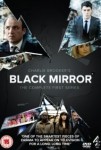Books
Hubert Wolf’s The Nuns of Sant’Ambrogio: The True Story of a Convent in Scandal epitomizes how history should be written for the general public. Although the PR around the book promises a look at “sex, poison, and lesbian initiation rites in a nineteenth-century convent,” this is in no way a lurid read. Sure, the story is about a sexual and theological scandal in a Roman Catholic convent in Rome in the 1850s but it’s all placed in historical context that actually educates.
 The underlying story is based in large part on source documents of the subsequent hearings before the church’s Congregation of the Holy Office (a/k/a “The Inquisition”). Wolf came across those documents in the Vatican archives first made available to researchers in 1998. But Wolf, a professor of church history at the University of Münster, goes behind the trial documents and analyzes the entirety of what transpired.
The underlying story is based in large part on source documents of the subsequent hearings before the church’s Congregation of the Holy Office (a/k/a “The Inquisition”). Wolf came across those documents in the Vatican archives first made available to researchers in 1998. But Wolf, a professor of church history at the University of Münster, goes behind the trial documents and analyzes the entirety of what transpired.
Among other things, Wolf lays out and explains in language lay readers can understand how theological and doctrinal changes and differences within the Roman Catholic Church were integral to what happened and the subsequent hearings. Of necessity, the heavily-sourced The Nuns of Sant’Ambrogio goes inside then-current Vatican and church politics but, again, the book does so in a highly accessible fashion. In fact, I may have learned more about the history of the church I was raised in with this book than any other I’ve read. This is a work that deserves serious consideration when nonfiction book awards roll around.
Video
My experience with Black Mirror came about because my youngest daughter thought I might like it. She nailed it.
 This is a BBC television series Netflix is carrying, just like last month’s movie/DVD/streaming favorite, and it focuses on the effects of technology on us and society. The stories are always set in the near future and do have a slight Twilight Zone feel. The first episode, my favorite, is about perhaps the most outlandish terror plot you can think of. Yet it is really about how we deal with terrorism and the role of media in society and our relationship with and consumption of it.
This is a BBC television series Netflix is carrying, just like last month’s movie/DVD/streaming favorite, and it focuses on the effects of technology on us and society. The stories are always set in the near future and do have a slight Twilight Zone feel. The first episode, my favorite, is about perhaps the most outlandish terror plot you can think of. Yet it is really about how we deal with terrorism and the role of media in society and our relationship with and consumption of it.
Each episode is a separate cautionary tale tinged with dark with satire. Unfortunately, each season consists of only three episodes, all but one of which is 45 minutes in length. The BBC aired a “Christmas special” in December, which hasn’t hit Netflix yet, and the third season has yet to begin across the water. Since there are far too few episodes to satiate a person, the BBC and Netflix are being cruel to us addicts.
If necessary, the actual truth could be told, but the really interesting facts were deliberately omitted.
Hubert Wolf, The Nuns of Sant’Ambrogio







